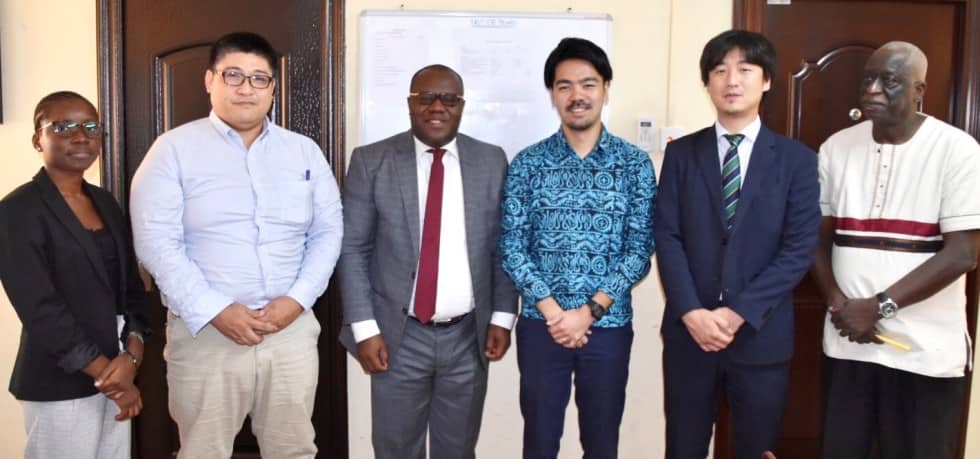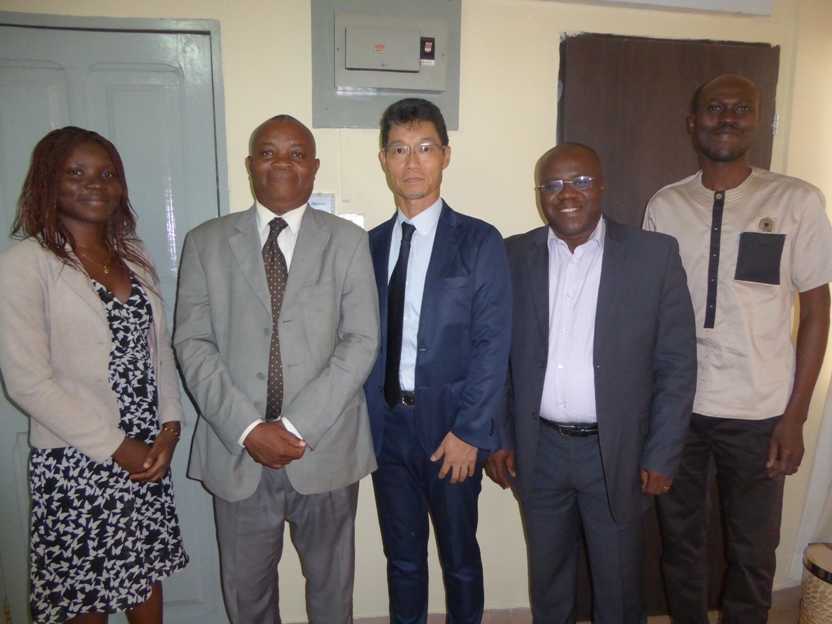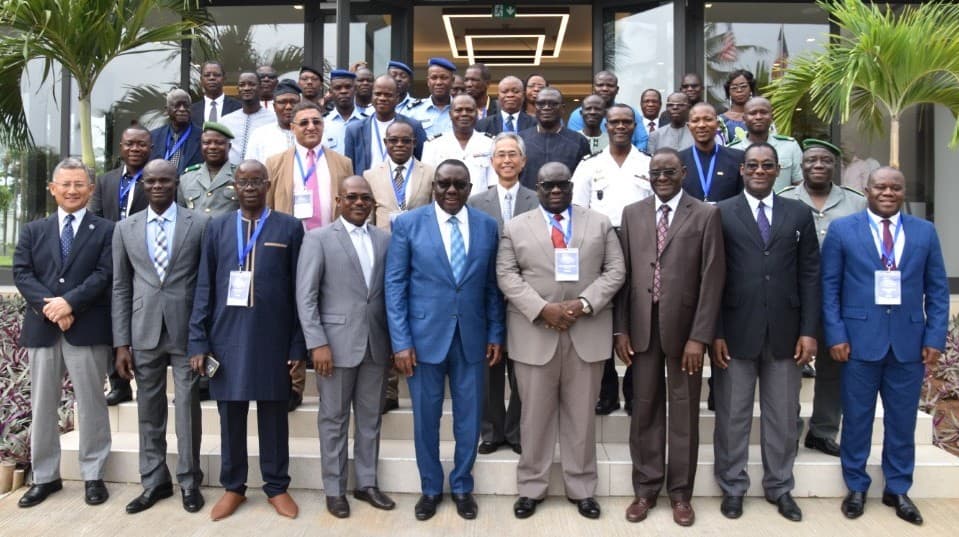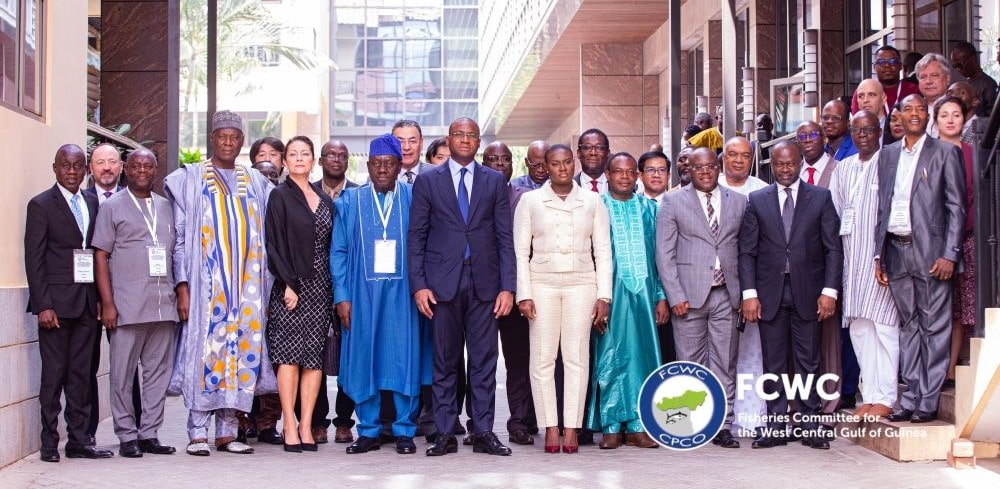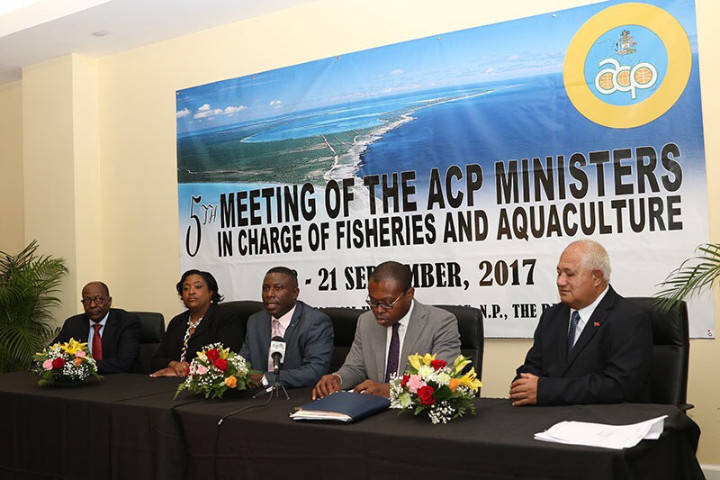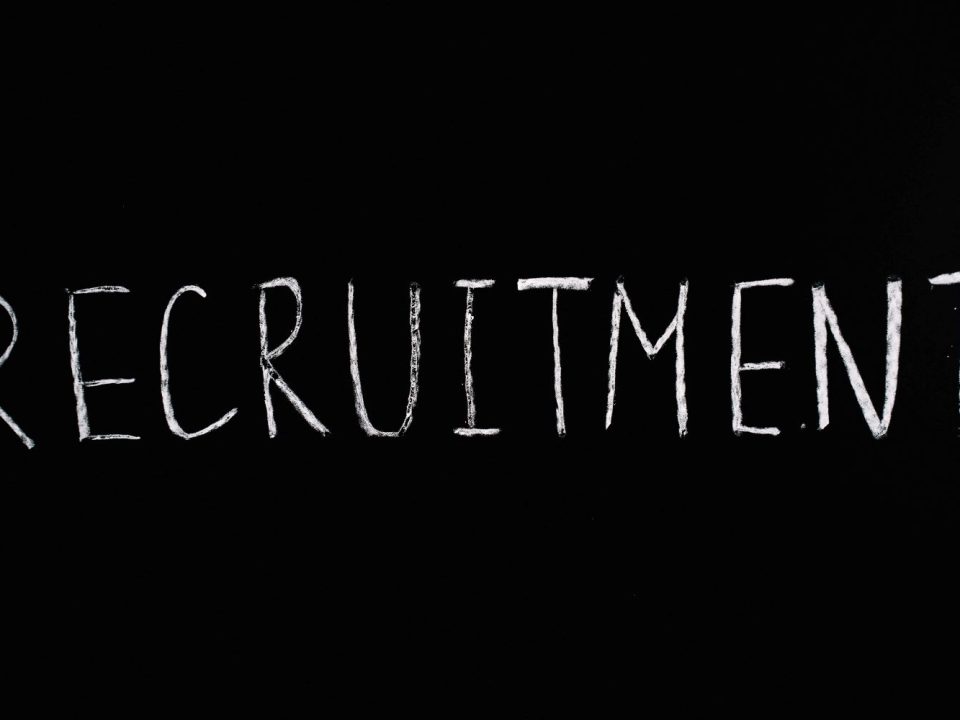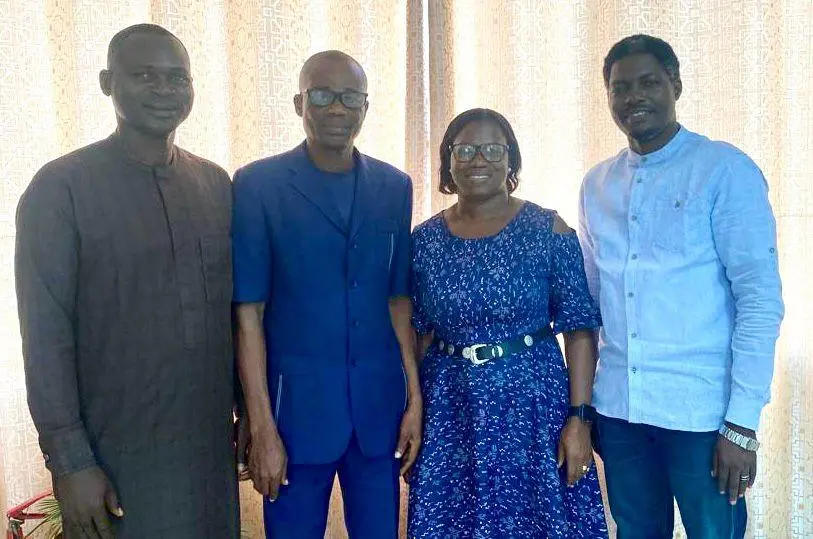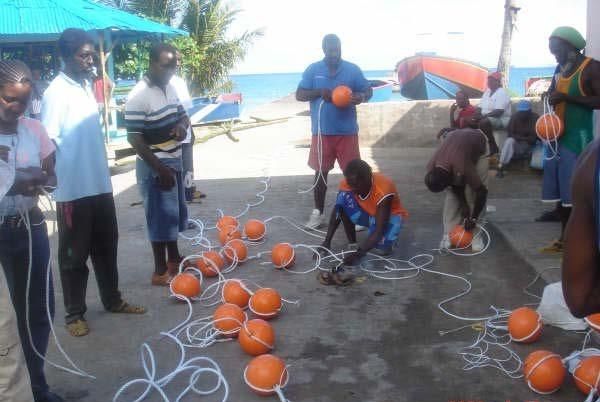 |
Fishermen assemble FAD in Grenada
|
BELIZE CITY, BELIZE, Wednesday, 29 November 2017 (CRFM)—An innovative fisheries project which the Caribbean Regional Fisheries Mechanism (CRFM) has been coordinating since 2013 in collaboration with the Japan International Cooperation Agency (JICA) across six OECS Member States is nearing its end.
The Caribbean Fisheries Co-Management Project (CARIFICO) was developed in 2012. Between 2009 and 2012, CRFM and JICA worked on developing a masterplan for the sustainable use of fisheries resources for coastal communities in the Caribbean. The CARIFICO project is a follow up project recommended by the master plan. The overall goal of the project is developing and implementing fisheries co-management approaches in six pilot countries in the Eastern Caribbean and disseminating and sharing the experiences and knowledge acquired to the other CARICOM States. The pilot project field work was done in Antigua and Barbuda, Dominica, Grenada, St. Kitts and Nevis, St. Lucia, and St. Vincent and the Grenadines.
The CRFM and JICA will convene a two-day meeting on 30 November – 1 December 2017 to review the project outcomes as well as chart the way forward. The CARIFICO-CRFM Regional Seminar on Strengthening Fisheries Co-management in the Region will take place at the Bay Gardens Resort in Castries, St. Lucia.
An opening ceremony will be held at 9:00 a.m. on Thursday, 30 November. Hon. Herod Stanislas, St. Lucia’s Minister in the Ministry of Agriculture, Fisheries, Physical Planning, Natural Resources and Cooperatives, is billed to deliver the keynote address. Also scheduled to speak at the event are CRFM Executive Director – Milton Haughton; Permanent Secretary in the Department of Agriculture, Fisheries, Natural Resources and Cooperatives in Saint Lucia – John Calixte; Director of JICA’s Rural Development Department – Ichiro Mimura; and the Chief Fisheries Officer in Saint Lucia – Sarita Williams-Peter.
Haughton said that CARIFICO was established roughly 5 years ago. Japan, which is very advanced in fisheries co-management and conservation, is supporting the initiative to transfer knowledge and build capacity in co-management in the Caribbean region, Haughton explained. Co-management is a governance system where responsibility for resource management is shared between the government and resource users, in this case, local fishers and their communities.
One emphasis of the project was demonstrating and testing co-management approaches by promoting the development and management of Fish Aggregating Devices (FADs) for harvesting tunas and other pelagic species. In Dominica, where most of the FADs were deployed, fisheries production increased significantly.
The project also tested co-management approaches in addressing ghost fishing by lost fish pots through the introduction of biodegradable panels in the pots.
This is vital since ghost fishing is a problem, especially when fishing gears get lost amid natural disasters. The problem is that drifting gear can keep snagging fish and other marine life. The adverse impact is mitigated by making the gears biodegradable, allowing them to self-destruct.
Over the course of the two-day meeting, presenters will detail what the project has achieved in strengthening co-management for the use of biodegradable fish pots, FADs for the pelagic fishery, and the conch fisheries. They will also discuss opportunities to strengthen co-management of the Caribbean’s offshore FAD fisheries.
The CARIFICO-CRFM Joint Statement on Fisheries Co-Management will also be developed, leading up to a discussion on the future direction of fisheries co-management. The statement, which will be refined at the meeting, details what the partners plan to achieve next in fulfillment of their mutual objectives. The finalized document is to be tabled at the April 2018 meeting of Fisheries Ministers from CRFM Member States who make up the organization’s Ministerial Council.
A team of experts from Japan did the final evaluation of the CARIFICO Project between August and November this year. The results from that final evaluation will be presented at the meeting.

PRESS CONTACT:
NAME: Milton Haughton, Executive Director
PHONE: 501-223-4443
E-mail: milton.haughton@crfm.int
CRFM social media links:
You Tube: http://www.youtube.com/user/TheCRFM
Facebook: http://www.facebook.com/CarFisheries
Twitter: https://twitter.com/CaribFisheries
ABOUT THE CRFM:
The Caribbean Regional Fisheries Mechanism (CRFM) was officially inaugurated on 27 March 2003 in Belize City, Belize, where it is headquartered, following the signing of the “Agreement Establishing the CRFM” on February 4, 2002. It is an inter-governmental organization whose mission is “to promote and facilitate the responsible utilization of the region’s fisheries and other aquatic resources for the economic and social benefits of the current and future population of the region.”
FCWC’s Secretariat



